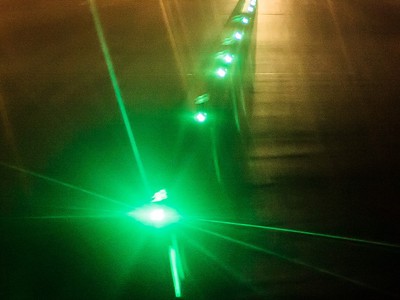

- Players who took the time to watch the behind the scenes video of PokerStars HQ may have been surprised by the explanation of the random number generator
- Gary Hill, the Director of IT Operations explained that the shuffle was randomized by firing a photon at a mirror.
- PokerStars uses a system developed by a Swiss Company, Quantis. The random number generator works on the basis of quantum theory.
Players who took the time to watch the behind the scenes video of PokerStars HQ may have been intrigued by the explanation of the random number generator used to shuffle its virtual cards.
Gary Hill, the Director of IT Operations explained that the shuffle was randomized by firing photons at a mirror. The solution that he explained arises from a perennial problem in online gaming of generating truly random numbers.
“One of the basic features of true randomness is that it cannot be produced by a computer, otherwise it wouldn’t be random and that sets up a mouthwatering problem,” according to Cristian Calude lead author of “Experimental Evidence of Quantum Randomness Incomputability.”
The PokerStars Quantum Solution
PokerStars uses a system developed by a Swiss Company, Quantis. The random number generator works on the basis of quantum theory.
A single photon is directed at a semi-reflective mirror—according to quantum theory, whether the photon is reflected or whether it passes straight through the mirror, is an entirely random process.
Researchers at the University of Auckland in New Zealand tested the level of randomness achieved using the Quantis system in comparison with other computational methods.
They found that “quantum randomness is indeed incomputable. That means that it could not have been be generated by a computer.”
If the random numbers cannot be computer generated, that indicates that it is impossible to reverse engineer them—in practice, it means that they cannot be falsified or replicated.
Additional Entropy
PokerStars adds a second layer of randomness to increase the security surrounding its shuffles. “User input” is added to further the entropy—a physicist’s measure of disorder —in the system and includes a “summary of mouse movements and events timing, collected from client software” to ensure a fair and unpredictable shuffle.
Oxford University Professor of Physics, David Deutsch, contends that the randomness from the optical process arises because of interference from an infinite number of parallel universes.
Deutsch “laid the foundations of the quantum theory of computation,” according to his induction announcement as a Fellow of the Royal Society, and he is a leader in explaining the “many-universes interpretation” of quantum theory.
So next time you get unlucky when you lose a hand on the river to a one-outer, remember that there may be untold trillions of other “yous” in other universes who won the pot.

